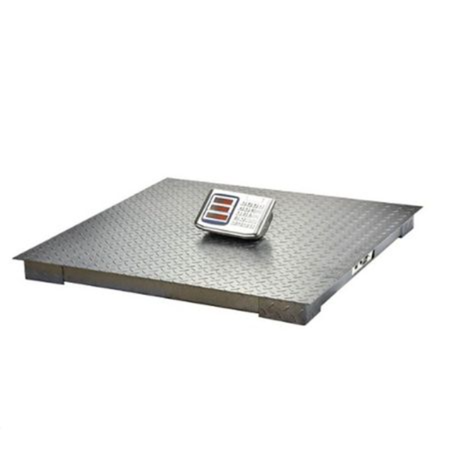How Industrial Scales Work: A Comprehensive Summary for New Users
Understanding the technicians behind industrial ranges is vital for new users that want to make certain precision in their measurements. As we discover these elements, one must take into consideration how these components engage to enhance efficiency in diverse commercial applications.
Basics of Industrial Scales
Industrial ranges are vital devices used throughout different sectors, including production, logistics, and farming, to ensure precise weight dimensions of heavy lots. The essential concept behind industrial ranges involves the conversion of weight into a quantifiable form that can be shown electronically or analogically. These scales use various systems, such as lots cells or mechanical levers, to figure out the weight of items positioned upon them.

In enhancement to their measurement capabilities, industrial ranges are made to hold up against rough atmospheres, featuring robust construction that stands up to dirt, wetness, and heavy influences. Calibration and upkeep are crucial to guarantee precision, as also small inconsistencies can lead to substantial economic ramifications. By understanding the essentials of commercial scales, customers can value their significance in various commercial applications.
Kinds Of Industrial Scales
Various kinds of industrial ranges deal with the diverse demands of different industries, each made to manage particular considering tasks with accuracy and dependability. Among one of the most common kinds are floor ranges, which are optimal for weighing large and heavy products. These scales normally feature huge platforms and can suit palletized goods, making them necessary in storage facilities and delivery facilities.
Another type is bench ranges, which are often utilized for smaller sized things in manufacturing and retail settings. They give accurate measurements for products that call for accuracy, such as chemicals or parts in assembly lines (Industrial Scales). For mobile operations, mobile ranges offer flexibility and simplicity of transportation, ideal for fieldwork or temporary setups
Additionally, specialized scales like checkweighers are made use of in manufacturing lines to keep top quality control by making sure that items satisfy weight specs. Each type of industrial range plays an essential duty in improving operational efficiency and accuracy throughout numerous markets.
Exactly How Evaluating Mechanisms Work
Considering devices are necessary elements that allow accurate measurement of mass across different industrial ranges. These mechanisms make use of different concepts of physics and engineering to provide exact weight readings, necessary for supply monitoring, high quality control, and compliance with governing standards.
One common kind of weighing device is the tons cell, which operates the concept of strain determines. When a tons is applied, the tons cell deforms a little, generating an electric signal proportional to the weight. This signal is then exchanged a legible you can look here weight measurement by the range's electronics.
One more widely utilized mechanism is the mechanical equilibrium, which uses a system of levers and weights. Industrial Scales. This method depends on the principle of balance, where the weight of the object being determined is stabilized against understood weights, permitting direct dimension
Additionally, pneumatic and hydraulic scales take advantage of liquid dynamics principles to gauge weight. These systems use the pressure applied by a load to figure out weight, supplying high accuracy for large lots.
Proper Usage Strategies
When utilizing industrial ranges, sticking to correct use strategies is essential for ensuring accurate measurements and keeping devices honesty. Primarily, it is vital to choose the ideal range for your specific application, as scales vary in capability and precision.
Before weighing, ensure that the scale is positioned on a stable, level surface totally free from vibrations or disturbances. This will certainly aid to decrease mistakes created by exterior variables. In addition, adjust the range according to the maker's specs prior to use, ensuring that it is functioning correctly.
When positioning things on the range, distribute the weight uniformly to avoid tipping or harming the tools. Constantly enable the scale to stabilize prior to taping the weight, as changes may occur throughout preliminary placement. For bulk materials, make use of containers that are proper for the scale size to avoid overloading.
In addition, stay clear of putting overly warm or chilly products directly on the scale, as temperature level variants can affect accuracy. Keep the weighing system totally free and tidy of debris to prevent contamination and make certain reputable outcomes. By complying with these techniques, individuals can make best use of the performance and long life of their industrial ranges.
Upkeep and Calibration Tips
Guaranteeing the long life and accuracy of commercial scales needs diligent upkeep and normal calibration. A preventative upkeep routine is essential; it should include routine inspections to identify wear and tear, specifically on load cells and various other sensitive parts. Routinely cleaning up the scale's surface area and guaranteeing the surrounding location is without particles will aid preserve its stability and efficiency.
Calibration is equally vital and need to be performed at routine intervals or whenever the range experiences substantial adjustments in temperature, humidity, or physical displacement. Use licensed calibration weights that website here are deducible to nationwide criteria for precision. Document each calibration session meticulously to track performance in time and determine any type of patterns or persisting concerns.
Train all drivers on proper scale use and maintenance protocols to ensure regular check here performance and accuracy. By sticking to these maintenance and calibration tips, customers can improve the dependability of their industrial ranges, guaranteeing optimal procedure in any type of setup.
Final Thought

Understanding the mechanics behind industrial scales is essential for new users who desire to ensure precision in their dimensions.Industrial ranges are necessary devices used across various industries, including production, logistics, and farming, to make sure precise weight measurements of heavy loads. The basic concept behind industrial scales involves the conversion of weight right into a quantifiable type that can be displayed digitally or analogically. By recognizing the essentials of industrial scales, customers can value their significance in various commercial applications.
In verdict, comprehending the operation and upkeep of commercial scales is crucial for making certain exact weight measurements in different applications. (Industrial Scales)